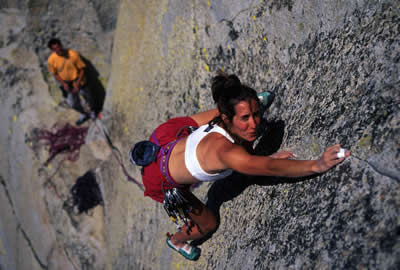 Trust
Trust should not mean blind faith. The charming innocence of very young children requires that their parents, teachers and caregivers be protectors and also demonstrate over and over that they can be "counted on" i.e. trusted.
The first step in developing trust is to learn to be present
ie. to be aware of one's own feelings and observations of what is going on in the present moment, the here and now. This is the process of learning to trust yourself. Is this individual a person I can work with and trust? Is this situation supportive and nourishing for me or is it toxic? Learn to tune in to perceptions that are usually not consciously "registered." Trust your "gut feelings."
The second step is to ask the right questions and examine the data and observe behavior or demonstrations. Does this teacher, coach, boss or mentor demonstrate expertise in his or her specialty area? Do I feel comfortable and can I learn from this person? Can I research this produce or service? What can I find out from Consumer Reports (c) or Angie's List (c) or state license boards or professional associations' lists of instructors?
The third step is to know in what areas one hasn't exercised good judgment in the past and to learn from one's mistakes.
Finish this sentence: "I can't trust myself around..."
(A buffet table of chocolate deserts; high pressure car salesmen etc.) I used to joke that I couldn't trust myself in a bookstore or near a display of earrings. "The money or credit card just seems to fly out of my wallet!"